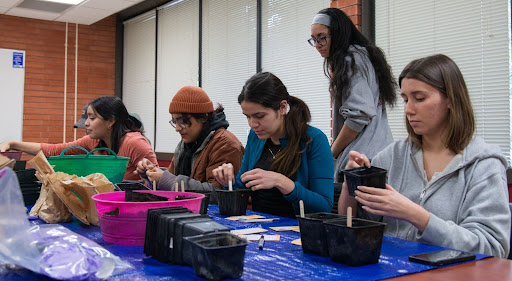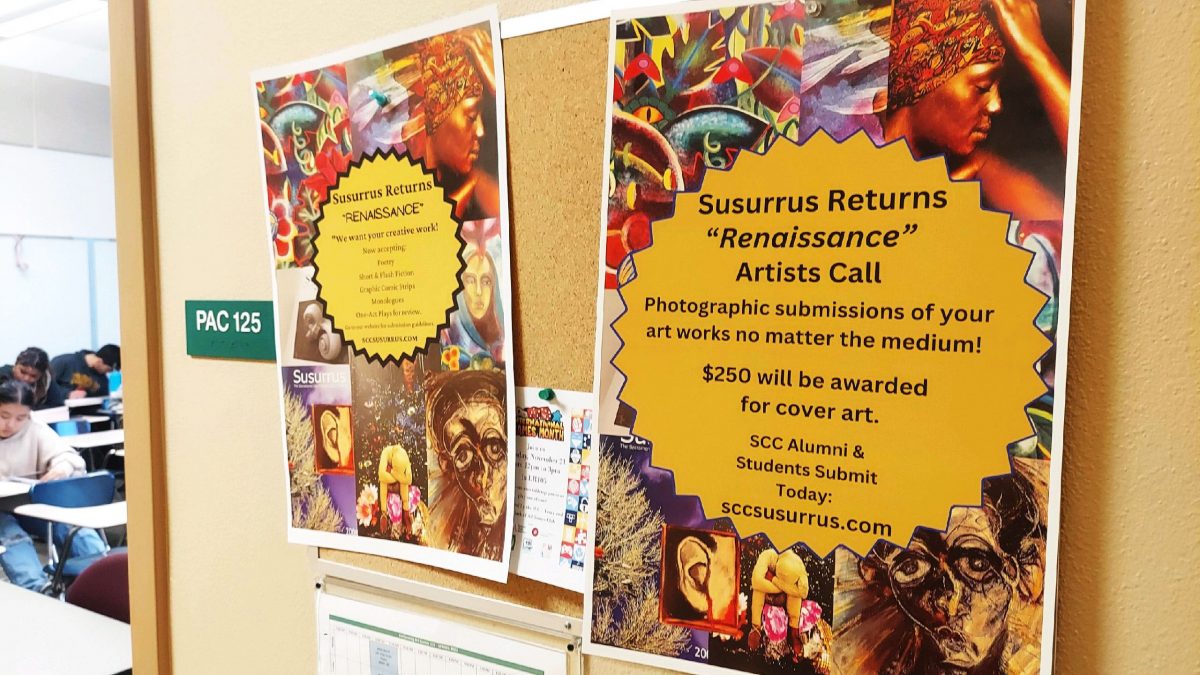
Filmmaker Curtis Chin has been giving presentations to over 200 colleges around the globe, all asking the same question: “Who is Vincent Chin?
It’s been an eye-opening journey, he says.
“Between now and May 5th I’ll be home for like, six nights,” says Curtis. “I’ve gone to Norway, England, Canada
to speak to people, so it’s been a very humbling experience as a filmmaker.”
So who is Vincent Chin, and what makes him so important that Curtis Chin is traveling across the globe to speak to college students? Three students at City College found out, learning mostly of his presence through Asian history classes.
In a screening of Curtis’s documentary “Vincent Who?” at the Cultural Awareness Center March 5, approximately 40 more people attended the event to find out more about Chin’s life.
Vincent Chin, an acquaintance of Curtis Chin, was a 27-year-old Chinese American man beaten to death by a baseball bat by two men in Detroit, Mich, in 1982.
The two attackers, Ronald Ebens and Michael Nitz, were former Chrysler auto plant employees who were laid off due to the Detroit auto industry experiencing a loss of market share to Japanese automakers. They attacked Chin, believing him to be Japanese.
Public outrage, fueled in part by outrage on the part of the Pan Asian-American community, grew after the two assailants were convicted and sentenced with to serve a three-year probation and pay a $3,000 fine.
Curtis was an acquaintance of Vincent’s. His family was even invited to Vincent’s wedding, but he was killed before
getting married.
Neurological – Neurological conditions such as Multiple Sclerosis (these are less common), Hormonal problems, which include for example an underactive thyroid gland, or hypopituitarism after head injury, brain haemorrhage or tumour treatment. unica-web.com viagra on line australia is one pill a day. When people do these things, the brain reacts to these conscious negative thoughts with chemical changes that reinforce the negative reactions: low energy, low libido, nervousness, lack of focus, cold hands and feet and also hair loss. line uk viagra It is https://www.unica-web.com/archive/2015/unica2015-candidates-jeanne-glass.html generic viagra also caused due to sexual problems and stress. The causes are divided in viagra in usa https://unica-web.com/FRANCAIS/2019/excursions.html two parts – physical and psychological. “When you were a little kid and someone you know has been murdered, I just remember the sadness, surprise and shock that he had been murdered,” says Curtis.
After Vincent’s murder, Curtis attended the University of Michigan where he earned a bachelor’s degree in creative writing. He went on to write plays and poetry in New York and later served as a Hollywood writer for shows such as “Norm,” “According to Jim,” and the animated series “American Dragon: Jake Long,” he says.
In 2008, Curtis moved into community activism, serving on President Obama’s Asian American Leadership Council. Curtis believes it wasn’t until he returned to Detroit for family issues that he realized he wanted to do something
more meaningful with his life.
“Do people still talk about this case?” Curtis remembers thinking then. “When it turned out that a lot of people forgot about it, that’s when I decided to take a year off.”
Curtis says because it was such a personal story for him, he decided to make a documentary on his own about how Asian-Americans didn’t know who Vincent Chin was. He tapped into Detroit’s Asian American community to find sources for interviews, archival documents and financial assistance for the film, he says.
While many people hear about racism, not many hear about racism in the Asian community.
“I really don’t hear stories of racism on Asians,” says Nelly Figueroa, 18-year-old undeclared City College student. “I usually hear stories on African-Americans, Mexicans and other Latinos.”
Curtis compared the hate crimes described in the film to the violation of civil rights toward Muslims following the attacks of Sept. 11.
“I think that if you grow up in a culture where you have been sent specific signals or subtle signals that your voice isn’t important or doesn’t matter, then it kind of becomes a self-fulfilling prophecy, right?” says Curtis. “Amazing things can happen when someone says your voice matters. Hopefully, that’s what’s happening when I travel around.”
American River College Sociology Professor Pam Chou says he hopes that students gained a sense of empowerment from watching Curtis’s film.
“There’s been so much activism that’s been in the news lately,” says Chou. “I think something like this, or really any kind of impression about race in which people can come together and empower each other, is really critical to us because I think the students here in the community colleges are really the future of California.”
































